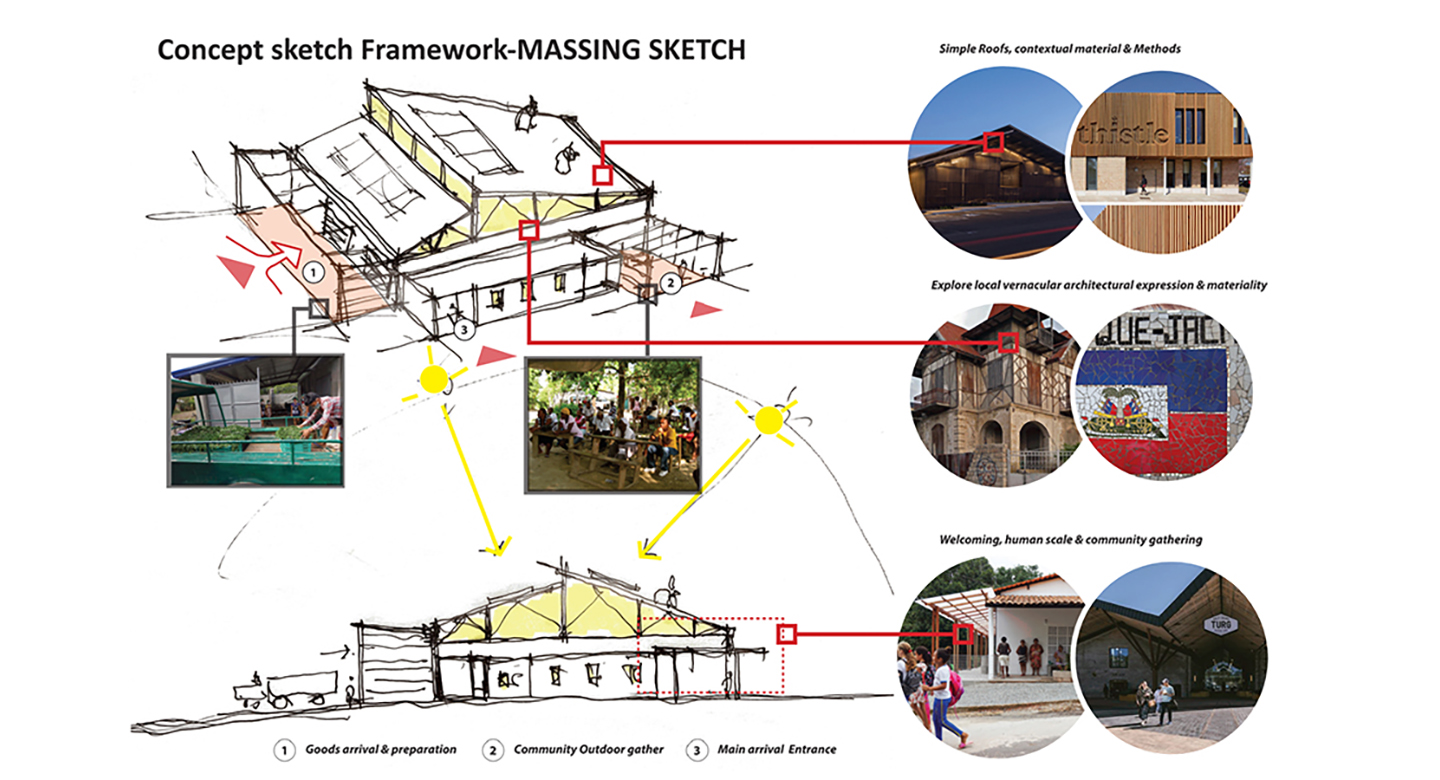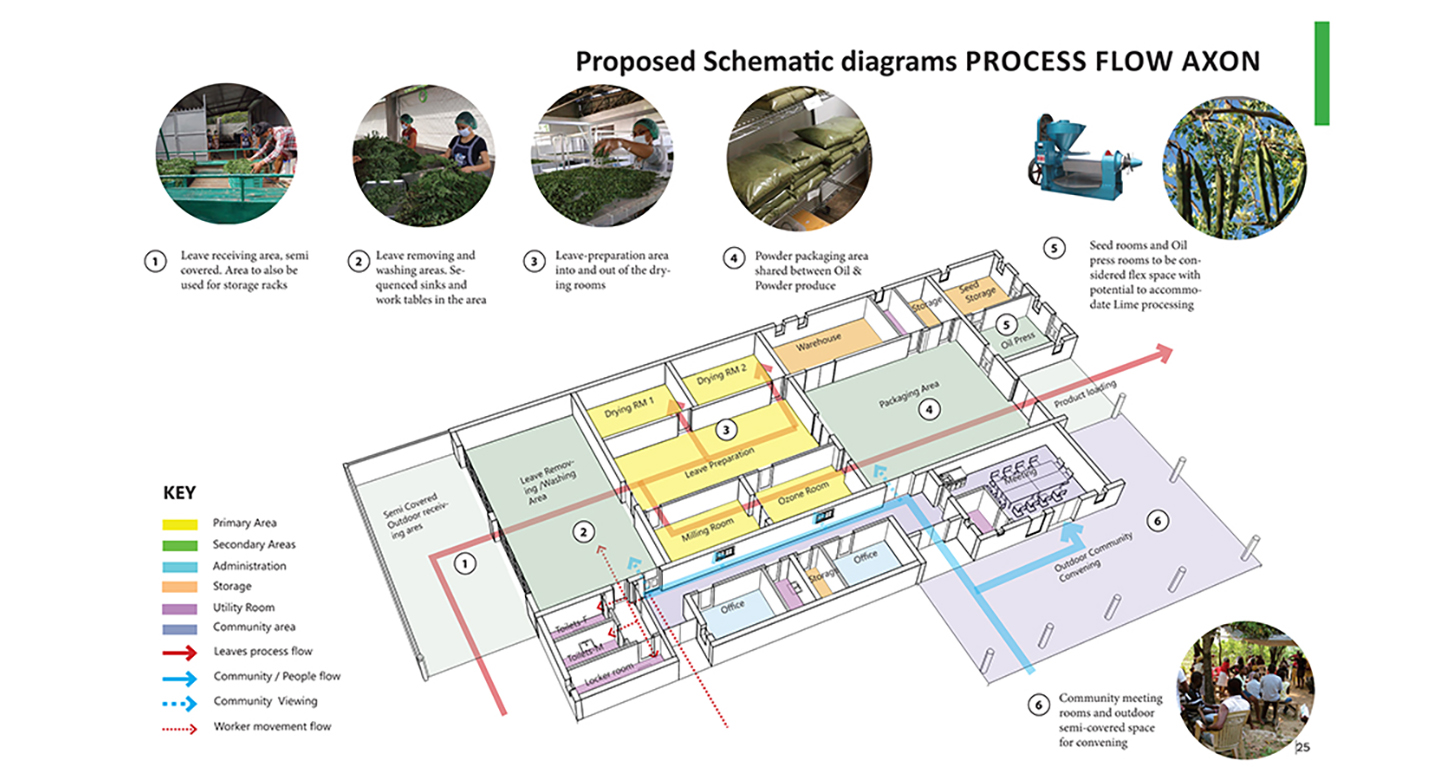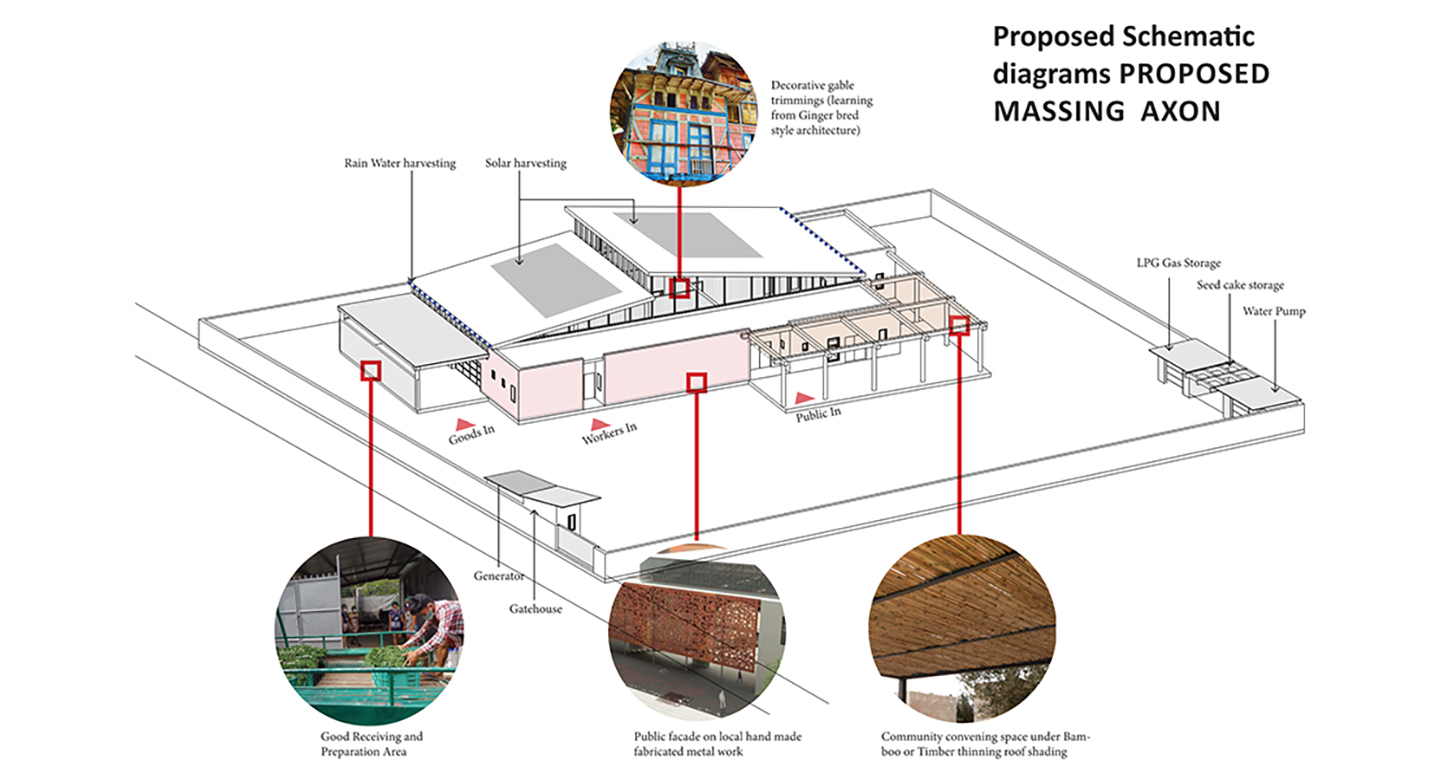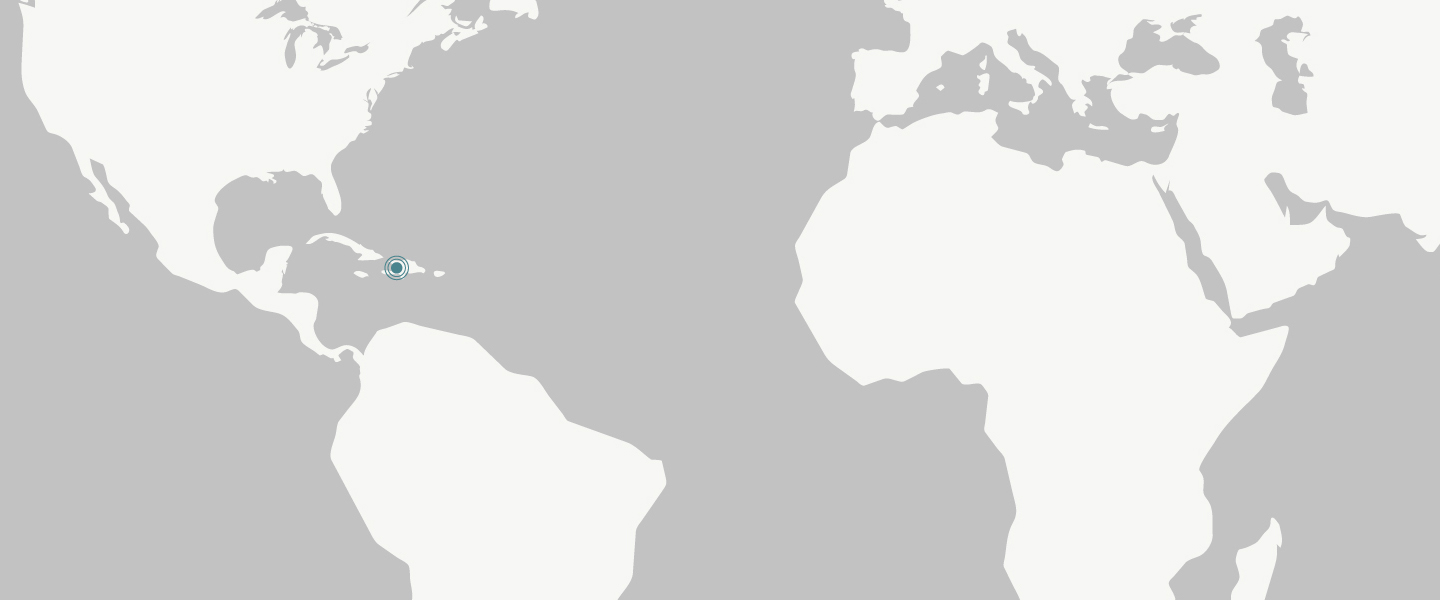


Acceso is a social business builder that brings entrepreneurial solutions to global poverty. Acceso builds, invests start-up capital into, manages, and scales agribusinesses that work with smallholder farmers and fishers. They improve the livelihoods of these producers and their communities by improving agricultural productivity, creating job opportunities, and facilitating long-term linkages to high-value markets. To support a partnership of smallholder farmers in Anse-a-Veau, Haiti, Acceso is developing a moringa plant processing facility. This facility will process moringa leaves, seeds (for oil products), lime, and mango products for local, and international bulk export. Seeing the potential for economic growth to local communities, Acceso will be duplicating this effort throughout the Caribbean, Central America, and South America, and looked to Adaptiv to design a prototypical facility. Adaptiv engaged project stakeholders to produce a prototype facility package. The prototype provides schematic design for building plans, massing, and systems. The prototype package provides a flexible basis of design to encourage the harvesting of local crops as Acceso expands its pioneering entrepreneurial model.
Acceso
Anse-a-Veau, Haiti
March 2021
Industrial, Prototype
Research, Prototype, Architecture
Leap/Step, BA+C, Adaptiv, Jacobo
Acceso’s mission is to create fundamental and lasting economic change for rural communities. In line with their mission, Adaptiv created a prototype package that will be adapted and erected by local teams. The guidelines outlined in the document will ensure the processing plants meet global standards for distribution but allow local teams to design, engineer, and build with their local best practices and resources in mind.
The design of the moringa processing facility is welcoming and meant to be not only a place for processing but a place for community gathering. The exterior spaces of the facility will contain minimal barriers so it may be open to the community. The design encourages the community to engage with the operations through windows into the plant to demystify the process, and encourage educational opportunities.
The moringa processing prototype integrates resilient design solutions. Building material selection encourages a low carbon footprint with an emphasis on the purchasing of local, and renewable materials. The processing plant will incorporate a solar power system and is designed for energy efficiency by optimizing daylight and encouraging a passive ventilation strategy. Reuse and recycling are considered through a water catchment system and using composting and recycling to limit waste.
Integrate Community
Provide Access
Respect Context
Enhanced Response Capacity
Address Vulnerability
GOAL 1: No Poverty
GOAL 2: Zero Hunger
GOAL 3: Good Health and Well-being
GOAL 6: Clean Water and Sanitation
GOAL 7: Affordable and Clean Energy
GOAL 8: Decent Work and Economic Growth
GOAL 9: Industry, Innovation and Infrastructure
GOAL 10: Reduced Inequality
GOAL 11: Sustainable Cities and Communities
GOAL 12: Responsible Consumption and Production
GOAL 15: Life on Land
